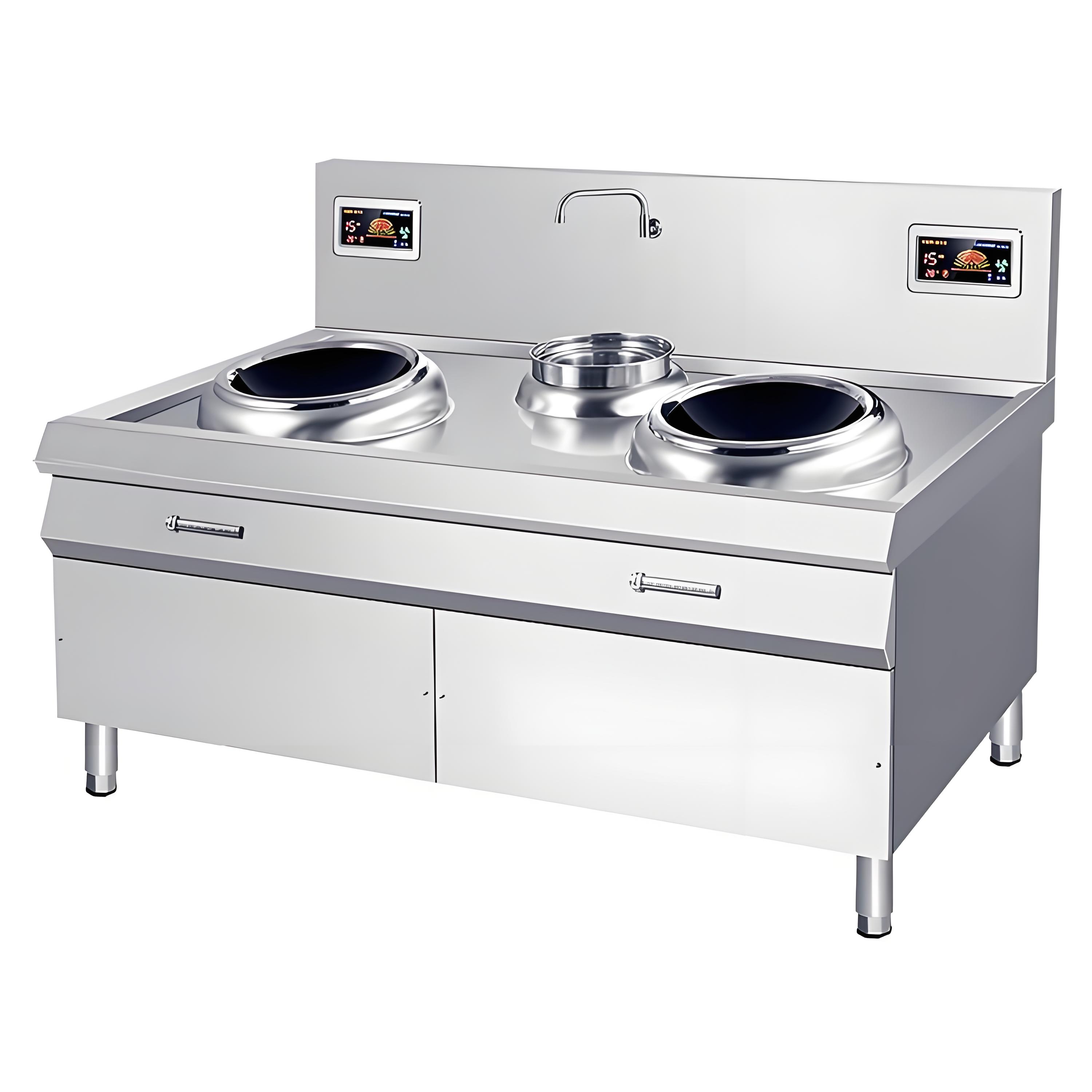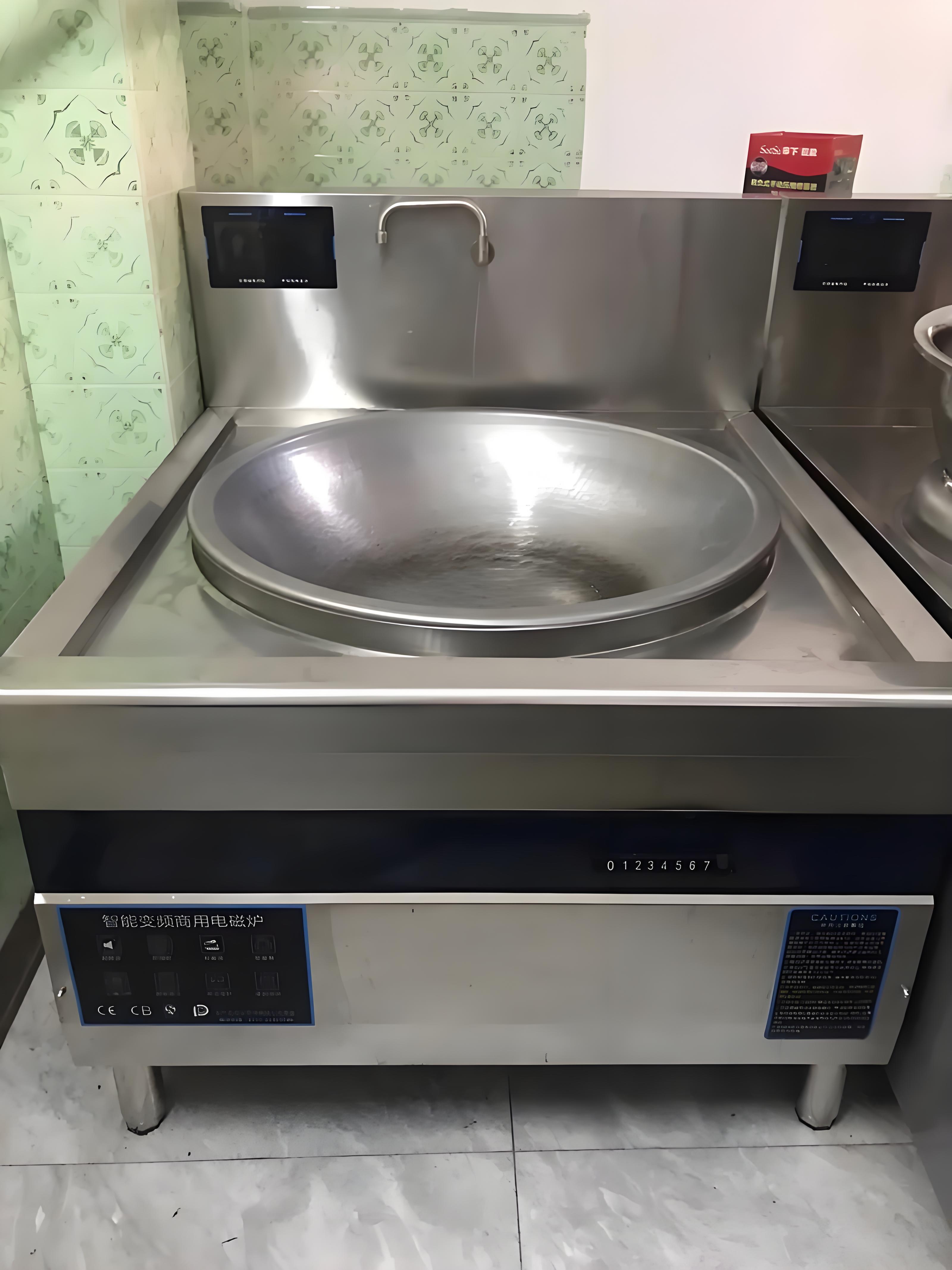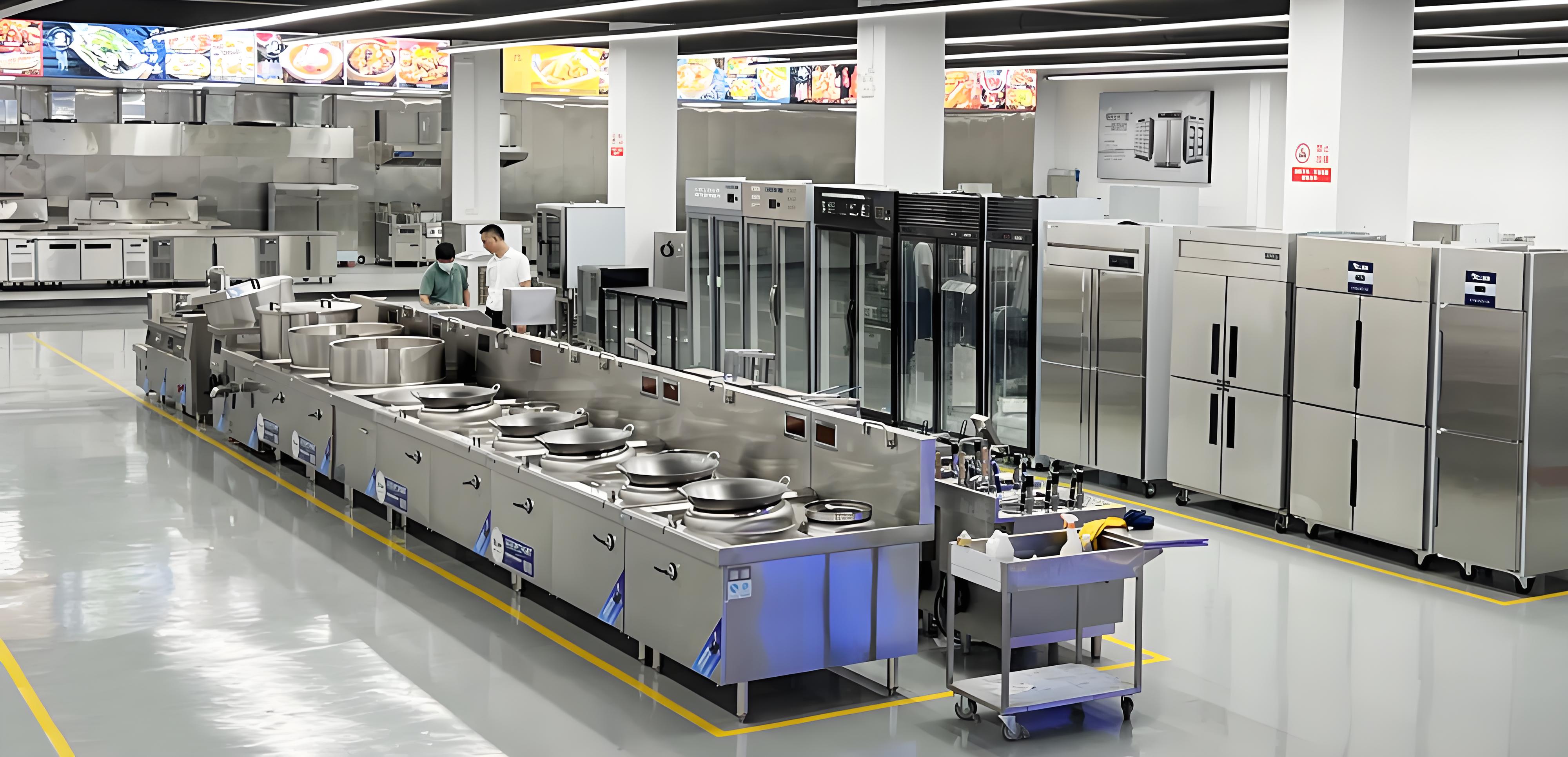Having spent years advising restaurants, catering businesses, and commercial kitchens on equipment choices, I’ve seen how critical a reliable warranty can be for keeping operations running smoothly. One question that frequently pops up when clients are considering commercial induction cookers is: How long is the typical warranty period, and what does it actually cover? This is especially important in high-pressure environments where downtime can cost thousands. In this article, I’ll share my insights on the standard warranty periods for commercial induction cookers, what affects their duration, what’s typically included, and how to make the most of your warranty. Drawing from real-world experiences and industry knowledge, I’ll help you navigate this key aspect of your purchase decision.
Why Warranty Periods Matter for Commercial Induction Cookers
In a commercial kitchen, equipment is the backbone of daily operations. Induction cookers, prized for their energy efficiency, speed, and safety, are a significant investment. A solid warranty provides peace of mind, ensuring that if something goes wrong—whether it’s a faulty component or a performance issue—you’re not left footing a hefty repair bill or replacing the unit entirely. But warranty periods can vary widely based on the manufacturer, model, and even where you purchase the cooker. Understanding these differences is crucial to making an informed choice.
From my experience, the warranty period isn’t just about duration—it’s about what’s covered, how responsive the support is, and whether the terms align with your kitchen’s needs. Let’s dive into the details, starting with the typical warranty lengths you can expect.
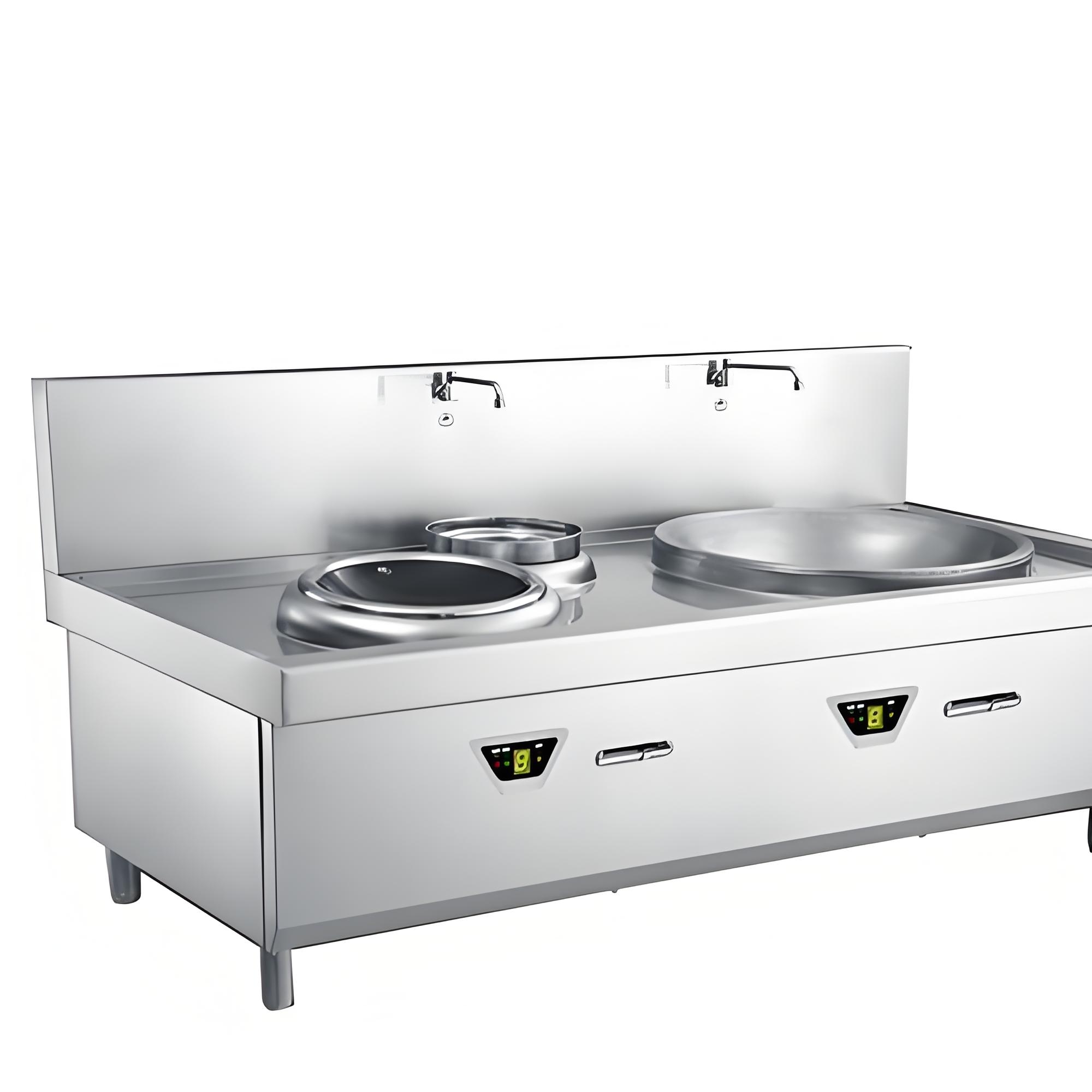
Standard Warranty Periods for Commercial Induction Cookers
Based on my work with various manufacturers and suppliers, the typical warranty period for commercial induction cookers ranges from 1 to 3 years, with some variations depending on the brand, model, and region. Here’s a breakdown of what I’ve observed:
1-Year Warranties: Common for entry-level or budget-friendly models, especially from lesser-known manufacturers. These often cover parts and labor but may have strict conditions, such as requiring professional installation.
2-Year Warranties: A standard offering from mid-tier brands. These warranties often include both parts and labor, with some manufacturers offering extended coverage for specific components like the heating coil or control board.
3-Year Warranties: Found in premium models from well-established brands. These are more comprehensive, sometimes including on-site repairs or replacement units to minimize downtime.
Extended Warranties: Some manufacturers or distributors offer optional extended warranties (up to 5 years) for an additional cost, particularly for high-end models used in high-volume kitchens.
For example, in a project I consulted on for a large restaurant chain, the branded induction cookers came with a 3-year warranty covering parts and labor, with an option to extend to 5 years. This gave the client confidence in their investment, as the units were used heavily every day. In contrast, a small café I worked with purchased budget models with a 1-year warranty, which proved limiting when a unit failed just after the warranty expired.
What Affects Warranty Duration?
Several factors influence the length of a commercial induction cooker’s warranty. Understanding these can help you choose a model with coverage that matches your needs:
Manufacturer Reputation: Well-known brands with a strong track record tend to offer longer warranties as a sign of confidence in their product’s durability. Lesser-known or off-brand manufacturers often provide shorter warranties to minimize their risk.
Model Type: High-end models with advanced features (e.g., multi-zone cooking or inverter technology) often come with longer warranties, as they’re built with premium components. Entry-level models typically have shorter coverage.
Region and Supplier: Warranty terms can vary by country or distributor. For instance, in some regions, local regulations require a minimum warranty period (e.g., 2 years in the EU). Suppliers may also offer extended warranties as part of a purchase package.
Usage Conditions: Some warranties are tied to specific usage conditions, such as professional installation or regular maintenance. Heavy commercial use (e.g., 12+ hours daily) may require a more robust warranty than light use in a small café.
I once worked with a catering company that purchased mid-range induction cookers with a 2-year warranty. The warranty was voided for one unit because it was installed by an unqualified technician, highlighting the importance of reading the fine print.

What’s Typically Covered in a Warranty?
Warranty coverage varies, but most commercial induction cooker warranties include the following:
Parts: Defective components like the heating coil, control board, or cooling fan are typically covered. High-quality brands often specify which parts have extended coverage.
Labor: Covers the cost of repairs by authorized technicians. Some warranties include on-site service, which is critical for minimizing kitchen downtime.
Manufacturing Defects: Issues like faulty wiring or poor assembly are covered, provided the unit was used correctly.
However, warranties often exclude:
User Damage: Damage from improper use, such as using non-compatible cookware or neglecting maintenance.
Wear and Tear: Normal degradation, like scratches on the glass surface, isn’t covered.
External Factors: Damage from power surges, water exposure, or improper installation may void the warranty.
In one case, a client’s induction cooker failed due to a power surge. The branded unit’s warranty didn’t cover this, but the manufacturer offered a discounted repair because the client had registered the product. Off-brand units, by contrast, often lack such flexibility.
Comparison of Warranty Periods Across Brands
To give you a clearer picture, I’ve compiled a table comparing warranty periods and coverage for different types of commercial induction cookers. Note that specific terms vary, so always check with the supplier:
| Brand Type | Warranty Period | Coverage | Additional Notes |
|---|---|---|---|
| Premium Brands | 2-3 years | Parts, labor, on-site repairs | May offer extended warranties |
| Mid-Tier Brands | 1-2 years | Parts, labor | Limited on-site support |
| Off-Brand Models | 6 months-1 year | Parts only, limited labor | Rarely includes on-site service |
| Extended Warranties | 3-5 years | Comprehensive, varies by plan | Often requires additional cost |
This table reflects general trends based on my experience. For instance, premium brands I’ve worked with often provide on-site repair services, which are invaluable in busy kitchens. Off-brand models, however, may only cover parts, leaving you to pay for labor or shipping.
Real-World Examples: Warranty in Action
Let me share two stories from my work to illustrate how warranties play out in real commercial settings:
High-End Restaurant with Branded Cookers
A fine-dining restaurant I advised invested in premium induction cookers with a 3-year warranty. During the second year, one unit’s control board failed during a busy dinner service. The manufacturer sent a technician within 24 hours, and the repair was fully covered, avoiding significant downtime. The warranty’s on-site service clause was a game-changer for this high-volume kitchen.
Small Catering Business with Off-Brand Units
A small catering company opted for off-brand cookers with a 1-year warranty to save costs. When a unit failed 14 months later, the warranty had expired, and replacement parts were unavailable. The business had to replace the unit entirely, costing more than the price difference between the off-brand and a branded model. This experience taught them the value of a longer warranty.
These cases highlight how a robust warranty can save time and money, especially in high-stakes environments.
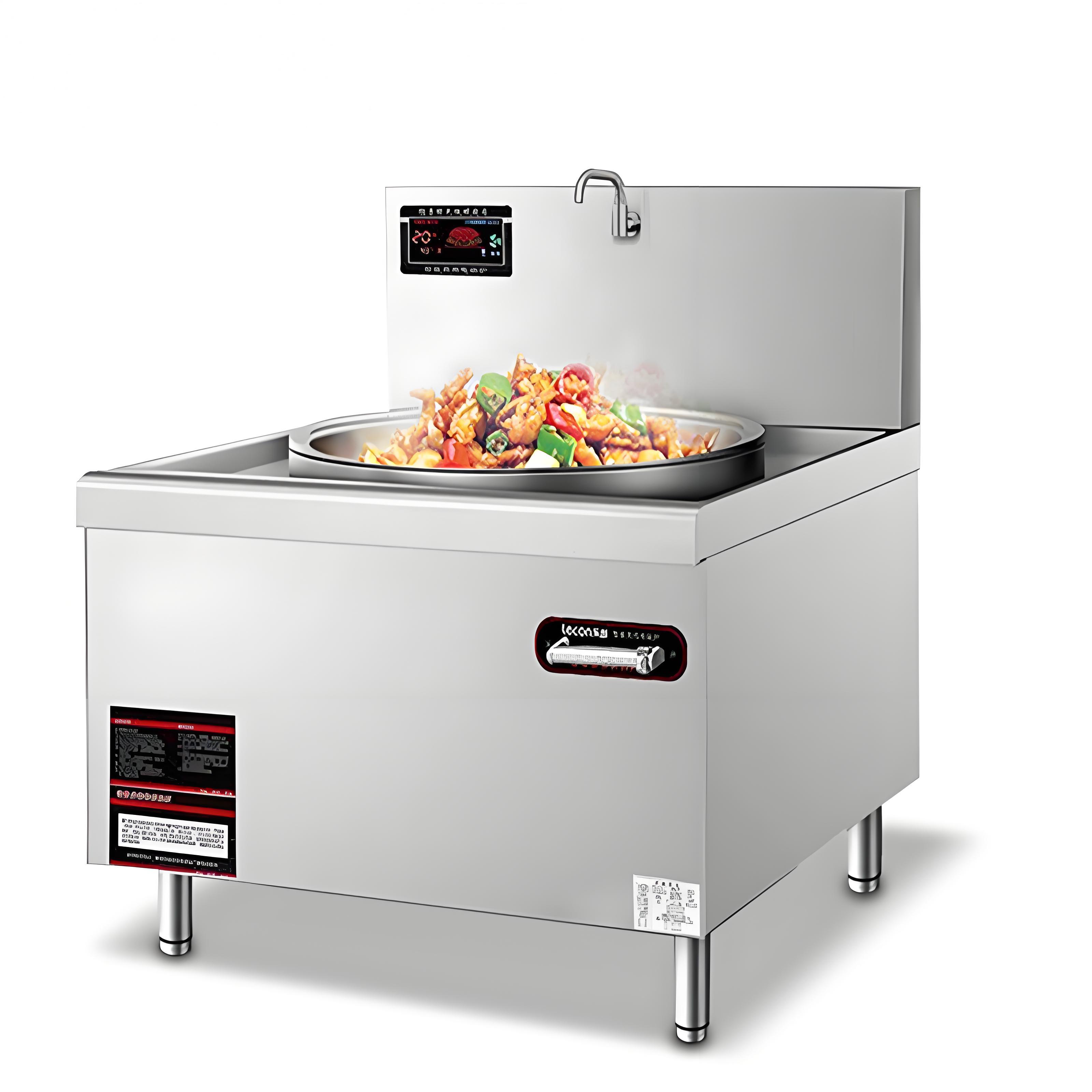
How to Maximize Your Warranty Benefits
To get the most out of your induction cooker’s warranty, follow these tips based on my experience:
Register Your Product: Many manufacturers require registration within a certain period (e.g., 30 days) to activate the full warranty. I’ve seen clients miss out on coverage because they skipped this step.
Keep Documentation: Save your purchase receipt, warranty card, and installation records. These are often required to process claims.
Use Authorized Installers: Some warranties are voided if the unit isn’t installed by a certified professional. Check the terms before installation.
Follow Maintenance Guidelines: Regular cleaning and proper use (e.g., using compatible cookware) can prevent issues that might void the warranty.
Contact Support Promptly: If you notice a problem, report it immediately to avoid complications. Delays can sometimes lead to disputes over warranty validity.
For example, in a project for a hotel kitchen, the client registered their branded cookers and followed the maintenance schedule. When a minor issue arose, the manufacturer resolved it quickly, citing the client’s adherence to warranty terms.
What to Do When the Warranty Expires
Even with a robust warranty, there comes a time when it expires. Here’s how to handle post-warranty scenarios:
Purchase an Extended Warranty: If available, consider extending the warranty at the time of purchase. This is often cost-effective for high-use kitchens.
Work with Authorized Repair Centers: Branded cookers typically have accessible spare parts and trained technicians, even after the warranty ends.
Budget for Repairs: For off-brand units, repairs can be costly due to part scarcity. Set aside a maintenance budget to avoid surprises.
Consider Replacement: If repair costs approach the price of a new unit, replacing it with a branded model may be more economical in the long run.
I once helped a client whose off-brand cooker failed just after its 1-year warranty. With no spare parts available, they upgraded to a branded model with a 3-year warranty, which proved more reliable and cost-effective over time.
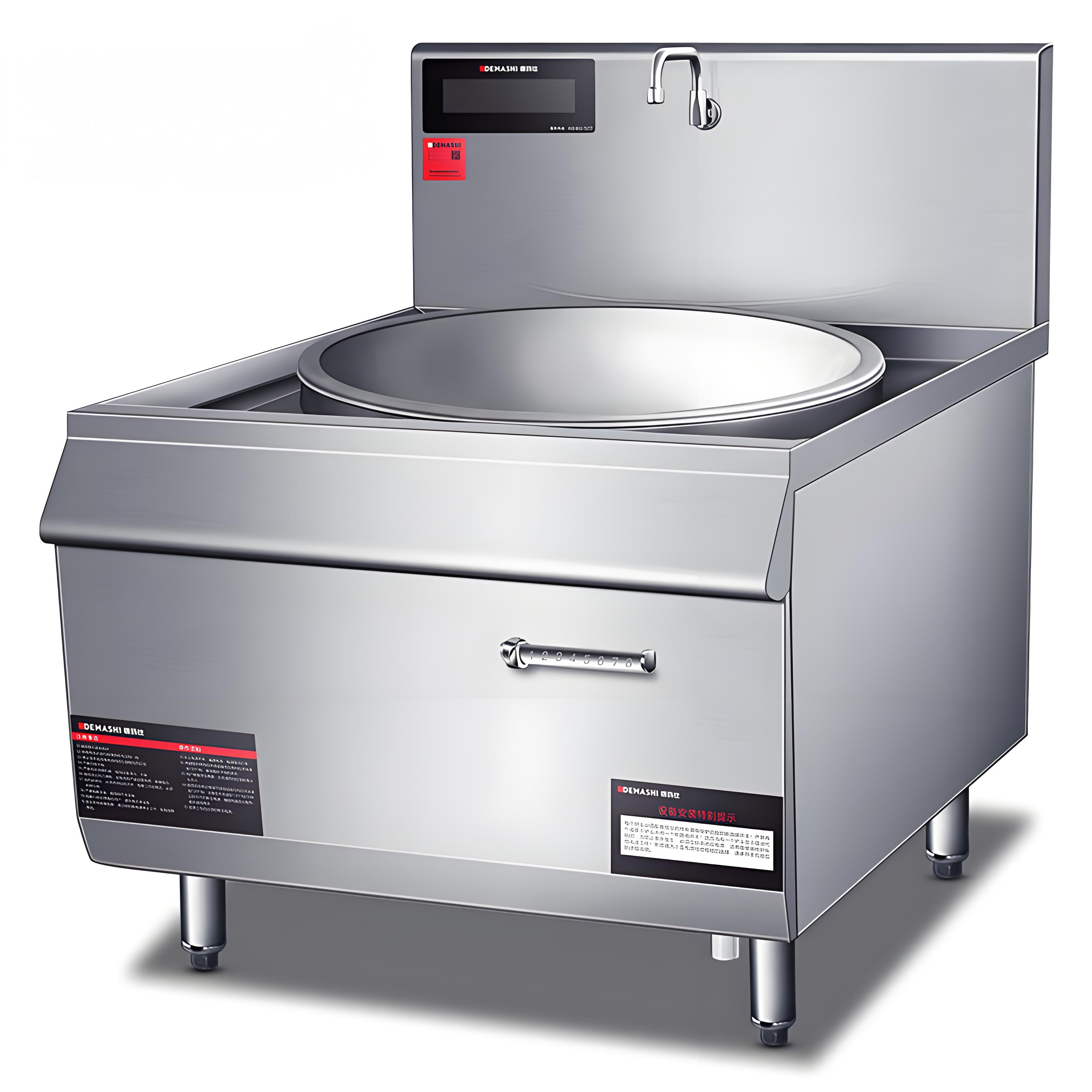
Choosing a Cooker with the Right Warranty
When selecting a commercial induction cooker, the warranty should be a key factor in your decision. Here’s my advice:
Prioritize Longer Warranties: A 2-3 year warranty is ideal for high-volume kitchens, as it reduces the risk of unexpected costs.
Check Coverage Details: Ensure the warranty includes both parts and labor, and ask about on-site repair options.
Research the Manufacturer: Established brands with a strong reputation are more likely to honor warranties and provide reliable support.
Compare Suppliers: Some distributors offer extended warranties or additional services, so shop around for the best deal.
If budget constraints push you toward a cooker with a shorter warranty, ensure it comes from a reputable supplier with clear terms and accessible support. Reading user reviews can also reveal how reliable the warranty process is.
Maintenance Tips to Extend Cooker Lifespan
A good warranty is only part of the equation—proper maintenance can reduce the need for repairs and extend your cooker’s life. Here are my top tips:
Clean Daily: Wipe the glass surface with a damp cloth and mild cleaner to remove grease. Avoid abrasive scrubbers that could damage the surface.
Ensure Proper Ventilation: Keep cooling vents clear of dust and debris to prevent overheating. Check them monthly.
Use Compatible Cookware: Flat-bottomed, induction-ready cookware ensures efficient heating and prevents surface damage.
Monitor Electrical Supply: Use a stable power source to avoid surges that could harm the cooker’s electronics.
These steps can minimize wear and tear, reducing the likelihood of warranty claims and extending the unit’s life beyond the warranty period.
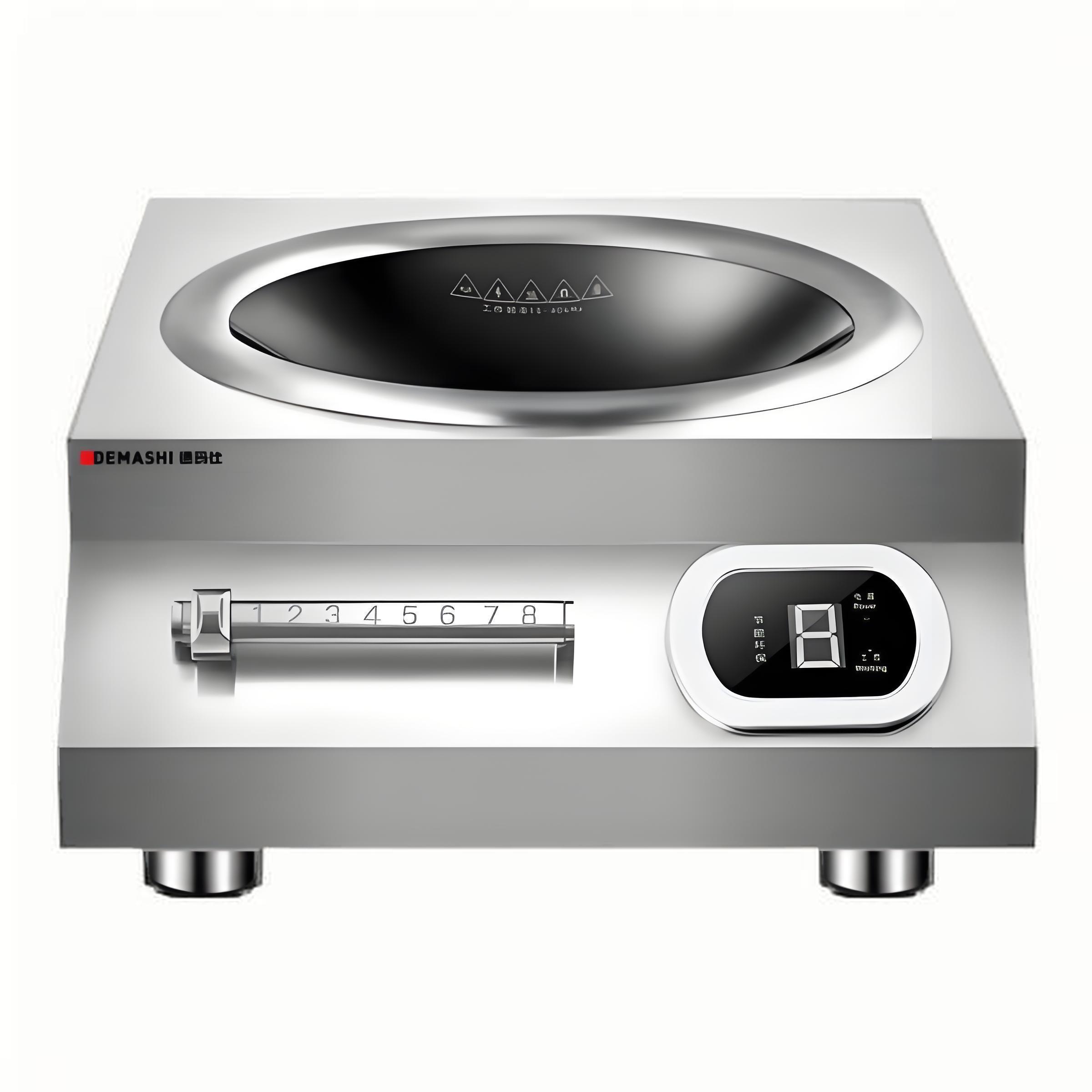
The Bigger Picture: Warranty as Part of Your Investment
A commercial induction cooker’s warranty is more than just a safety net—it’s a reflection of the manufacturer’s confidence in their product and a critical factor in your kitchen’s success. A longer, comprehensive warranty can save you from costly repairs, minimize downtime, and ensure your kitchen runs smoothly. While a shorter warranty might be tempting for budget-conscious buyers, it often comes with risks, especially for off-brand models with limited support.
In my experience, investing in a cooker with a 2-3 year warranty from a reputable brand is a smart move for most commercial kitchens. It’s like insurance for your business, protecting you from unexpected expenses and ensuring your equipment keeps up with the demands of a busy operation. If you’re considering a shorter warranty, weigh the potential risks against the upfront savings.
Conclusion: Choose Wisely for Peace of Mind
To wrap up, the warranty period for commercial induction cookers typically ranges from 1 to 3 years, with premium brands offering longer and more comprehensive coverage. By understanding what’s covered, following maintenance guidelines, and choosing a reputable manufacturer, you can maximize the value of your warranty and protect your investment. Whether you’re running a high-volume restaurant or a small catering business, a solid warranty can make all the difference in keeping your kitchen operational and profitable.
If you’re still unsure about which cooker or warranty is right for your needs, drop a comment below with your situation. I’m happy to share tailored advice based on my years in the industry!
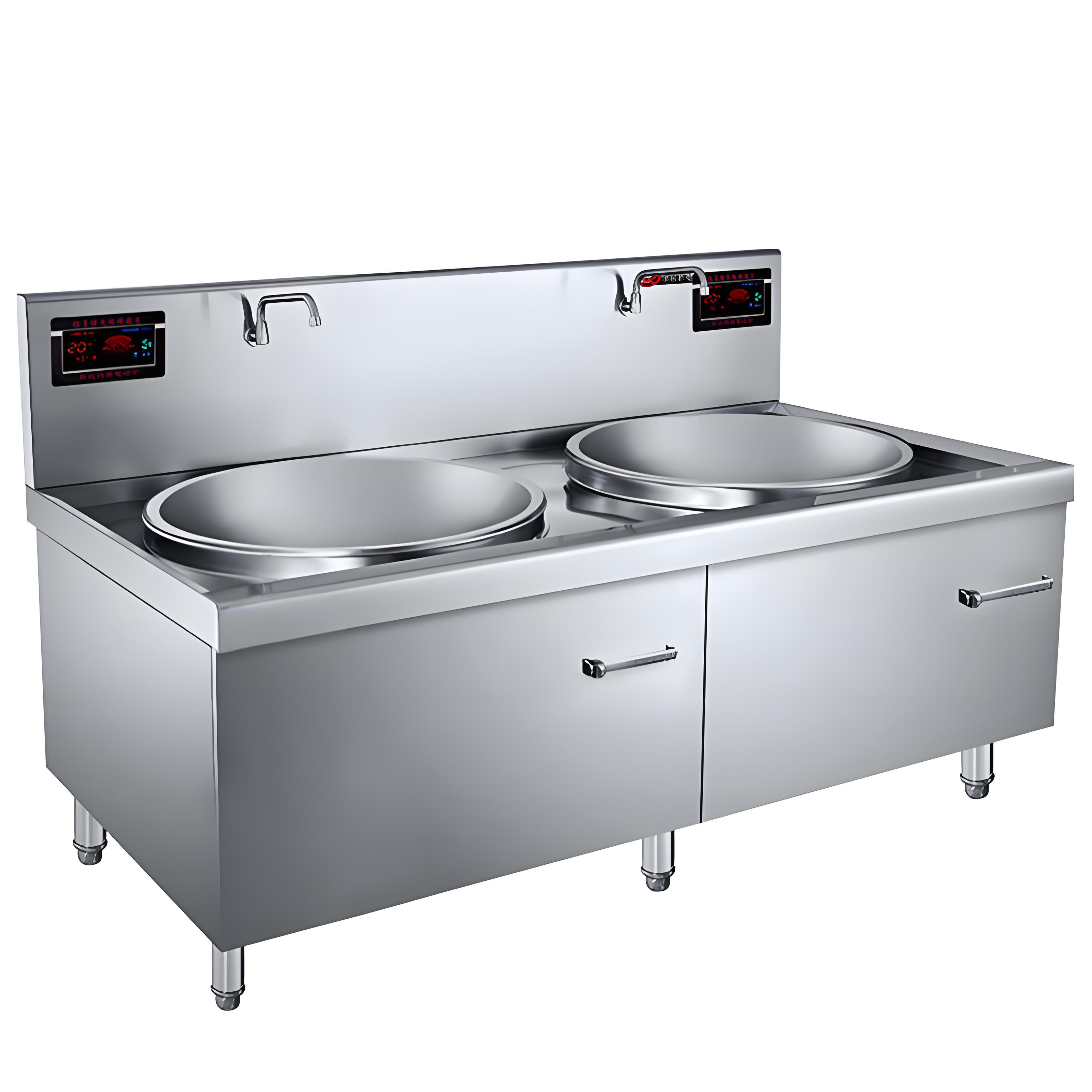
Frequently Asked Questions
1. What’s the average warranty period for a commercial induction cooker?
Most commercial induction cookers come with a 1-3 year warranty, with premium brands offering 2-3 years and off-brand models often providing 6 months to 1 year.
2. What does a typical induction cooker warranty cover?
Warranties usually cover parts (e.g., heating coil, control board) and labor for manufacturing defects. Some include on-site repairs, but user damage or wear and tear is typically excluded.
3. Can I extend the warranty on my induction cooker?
Many manufacturers offer extended warranties (up to 5 years) for an additional cost, especially for premium models. Check with your supplier at the time of purchase.
4. What happens if my cooker fails after the warranty expires?
For branded cookers, you can often access spare parts or authorized repair centers. Off-brand units may require replacement due to part scarcity, so budget for repairs accordingly.
5. How can I ensure my warranty remains valid?
Register the product, use authorized installers, follow maintenance guidelines, and keep all documentation. Contact the manufacturer promptly if issues arise.
